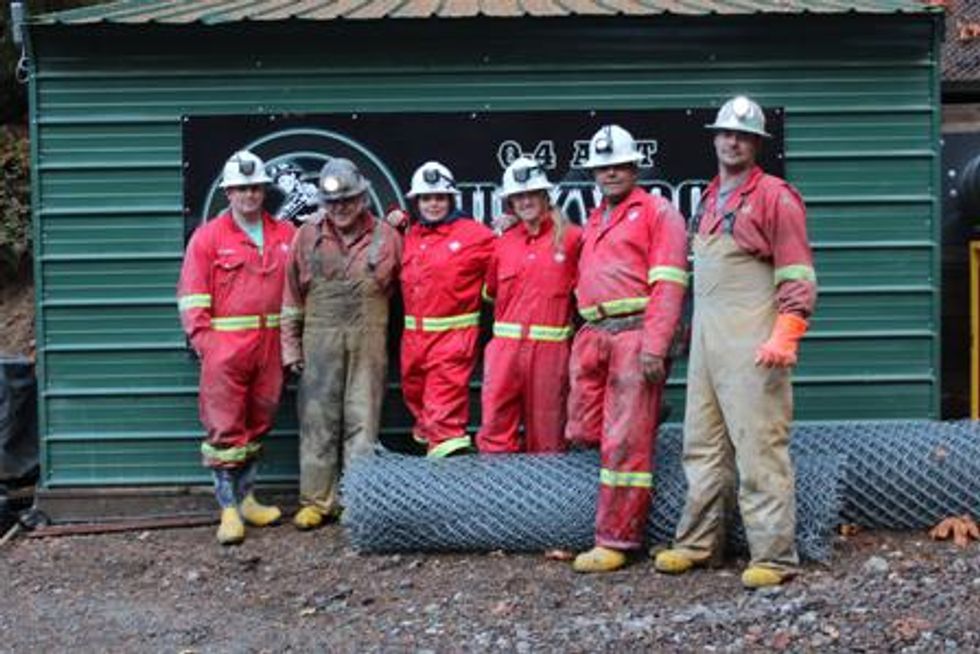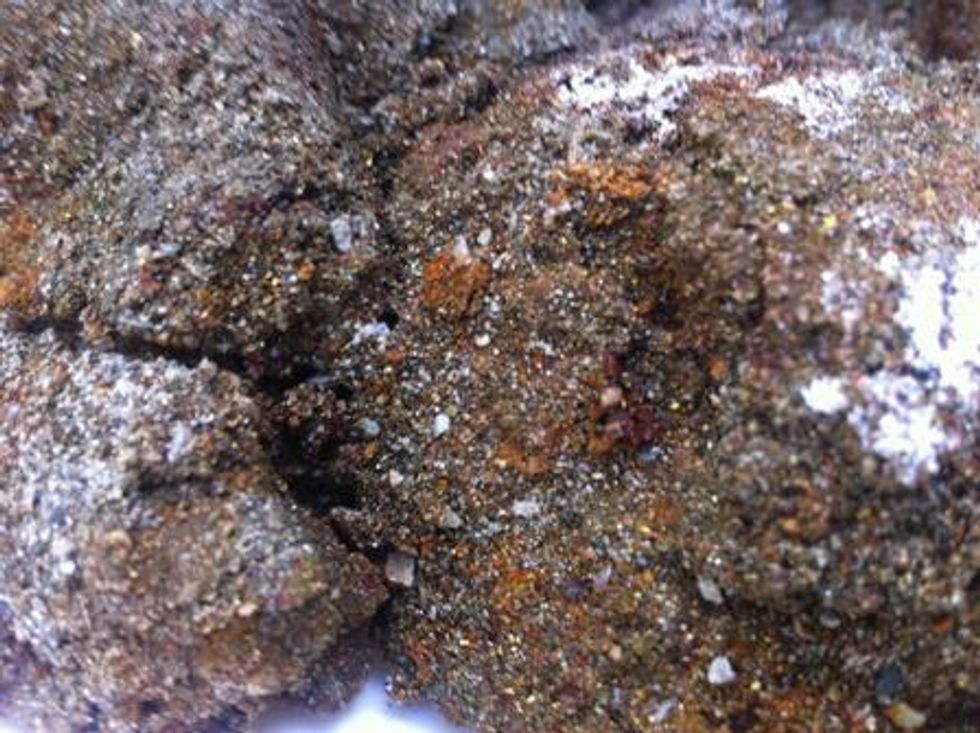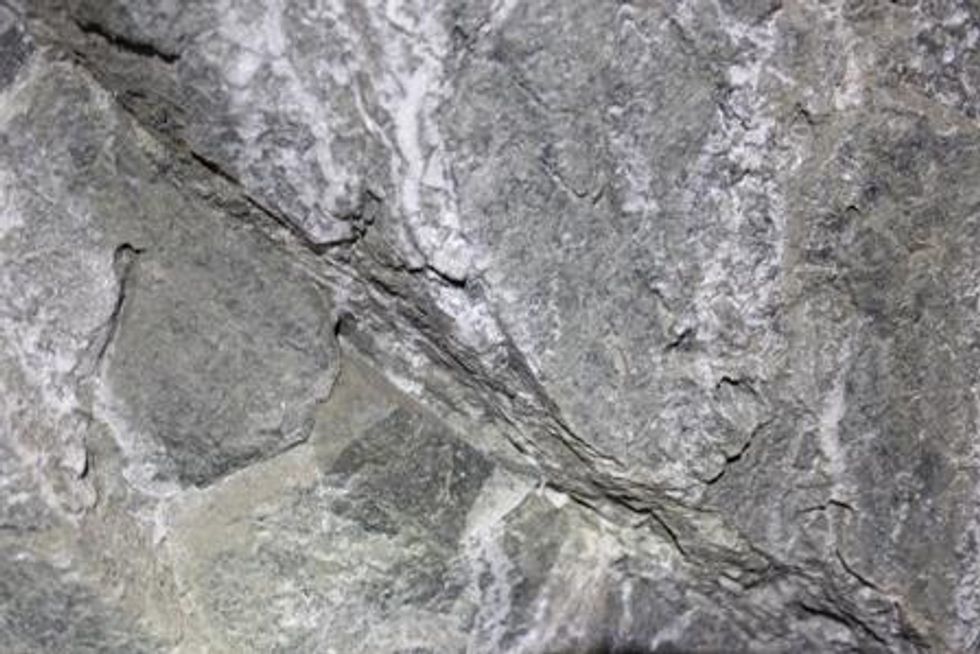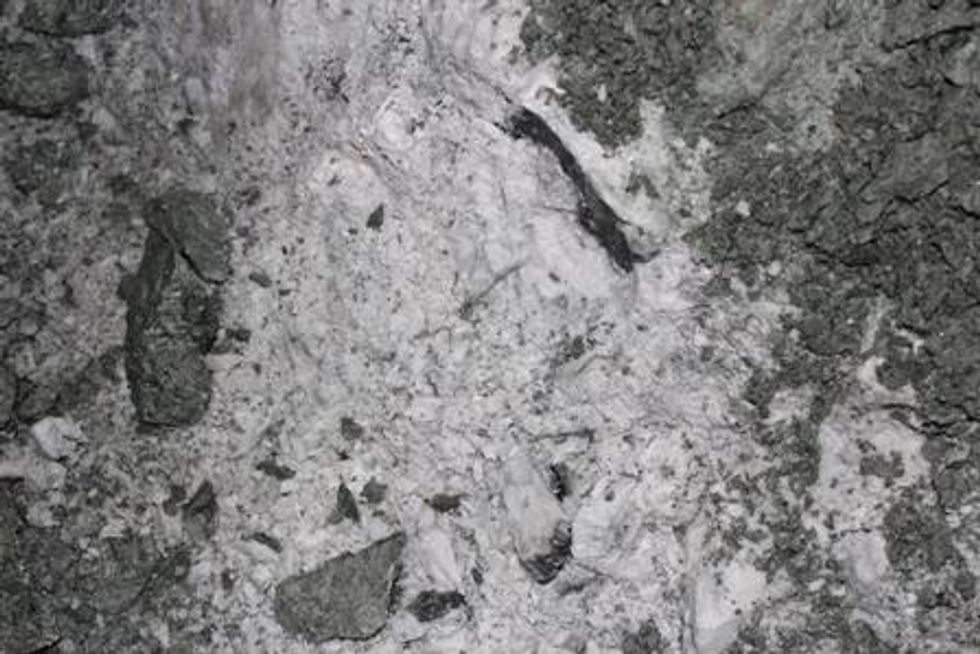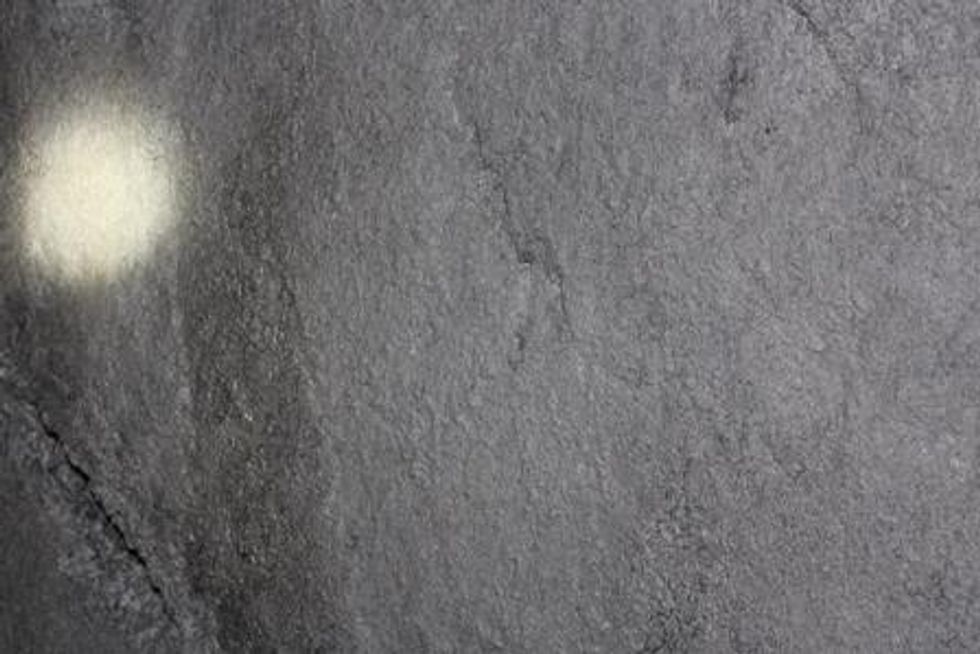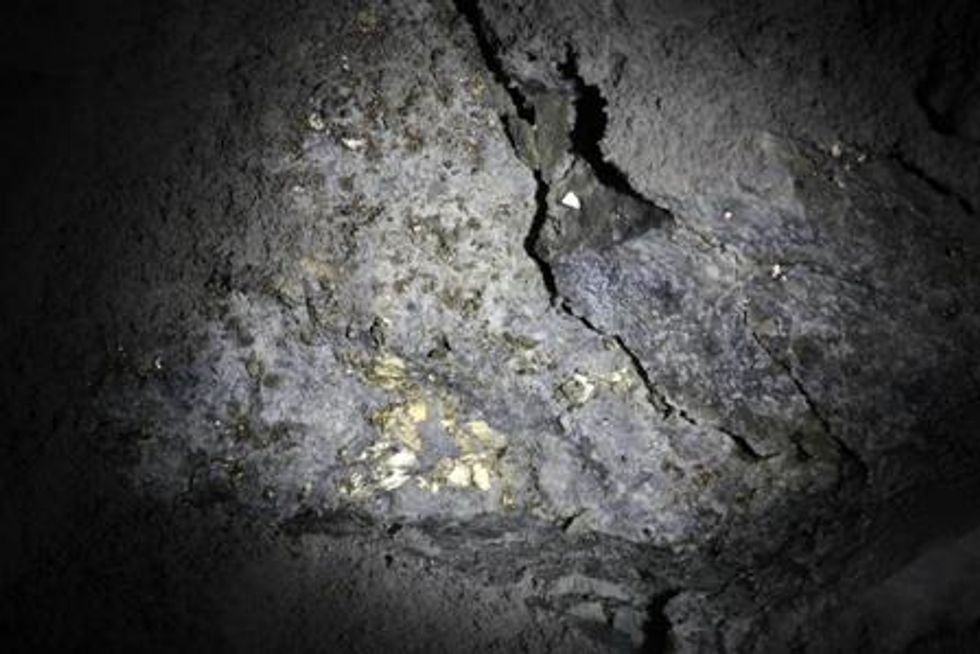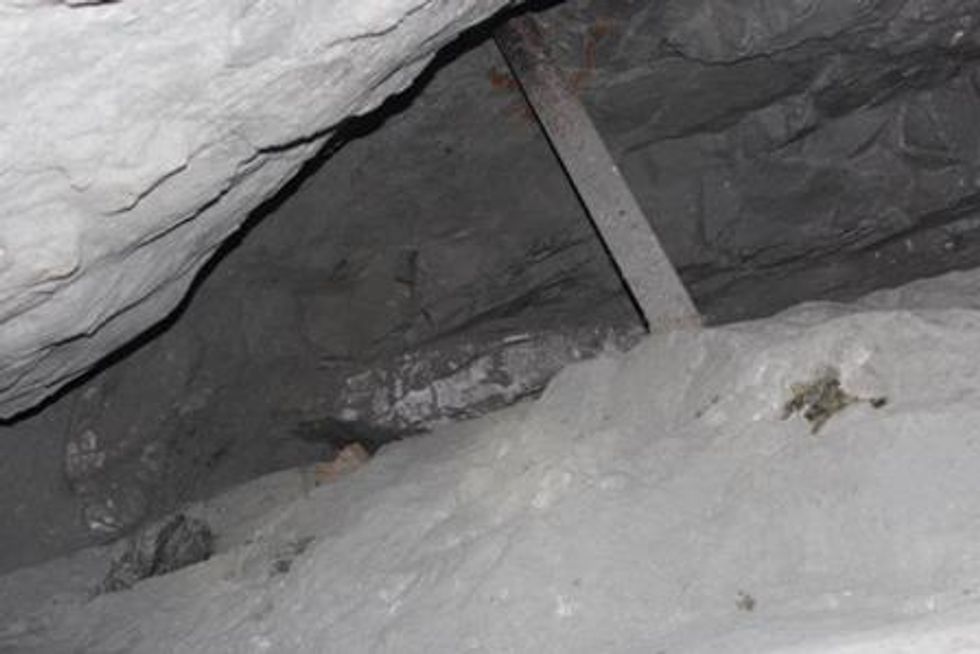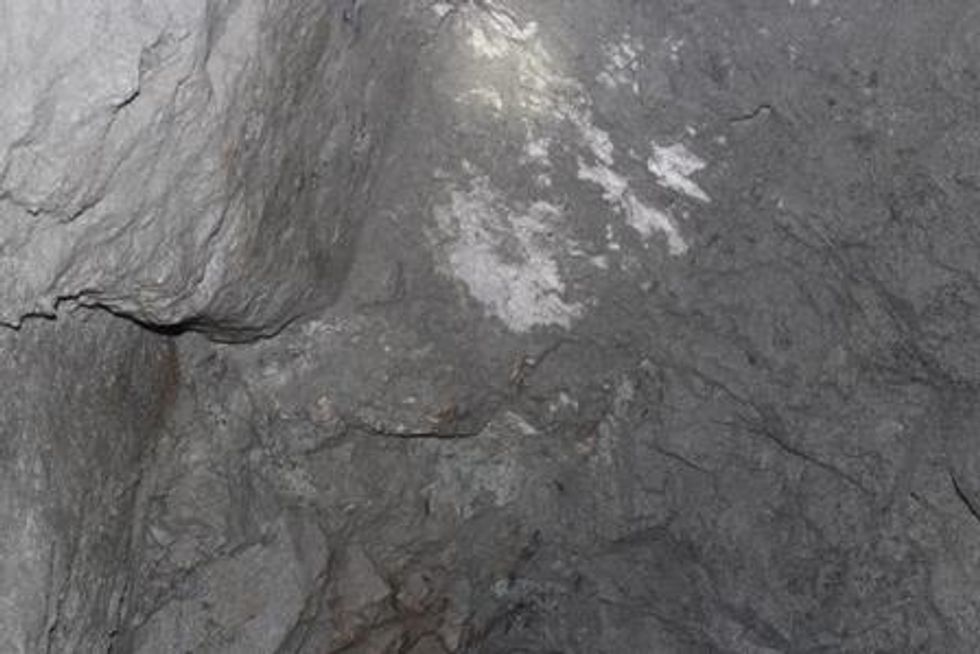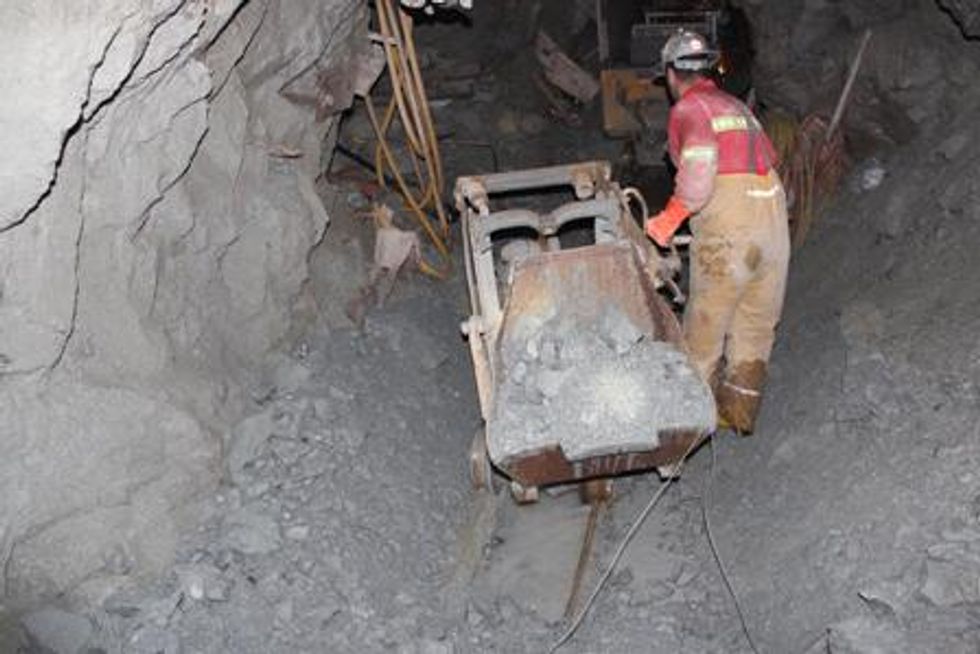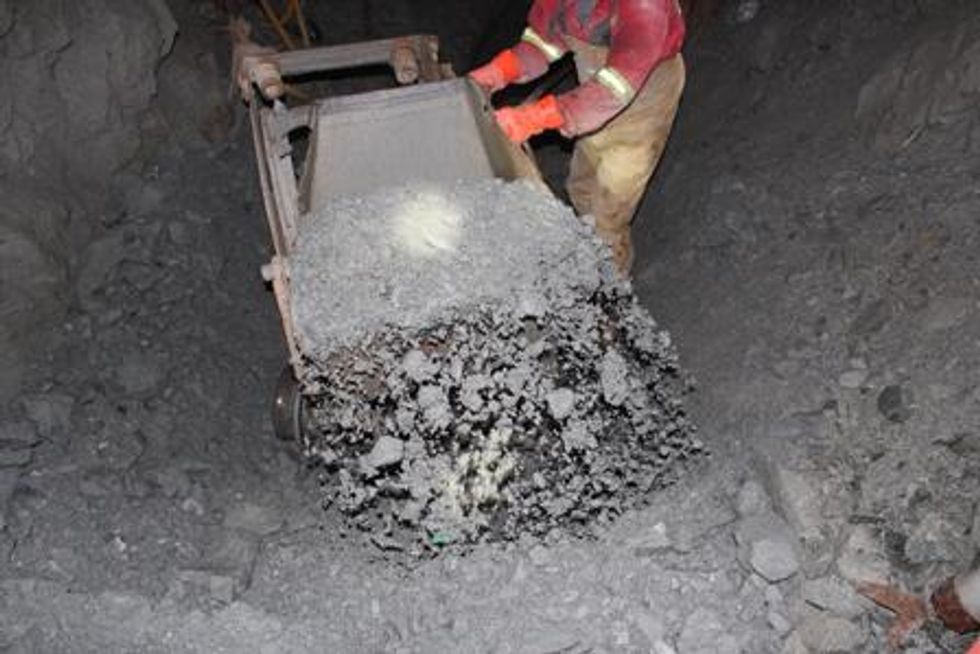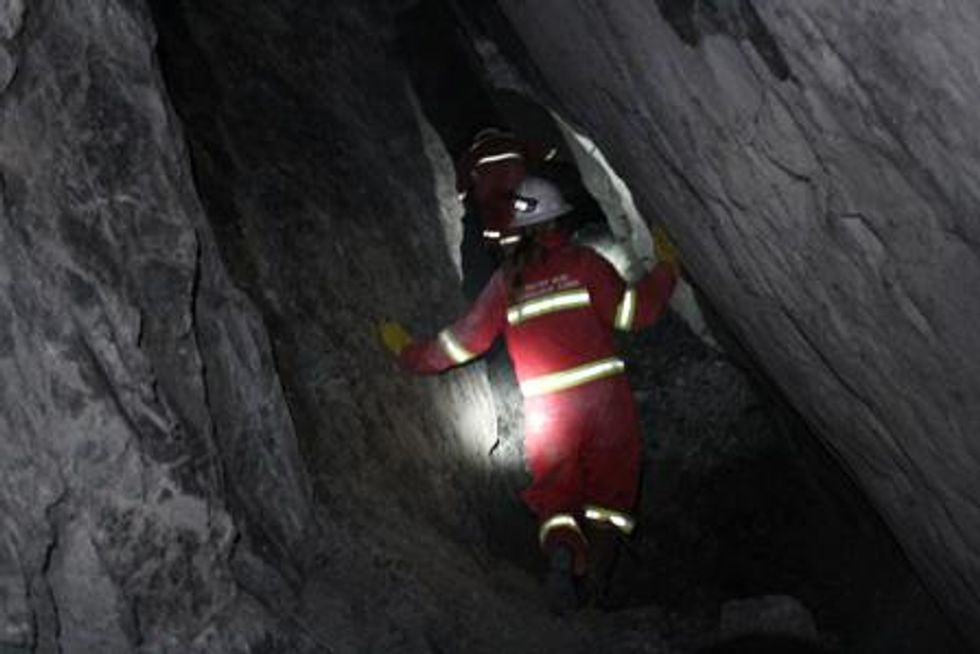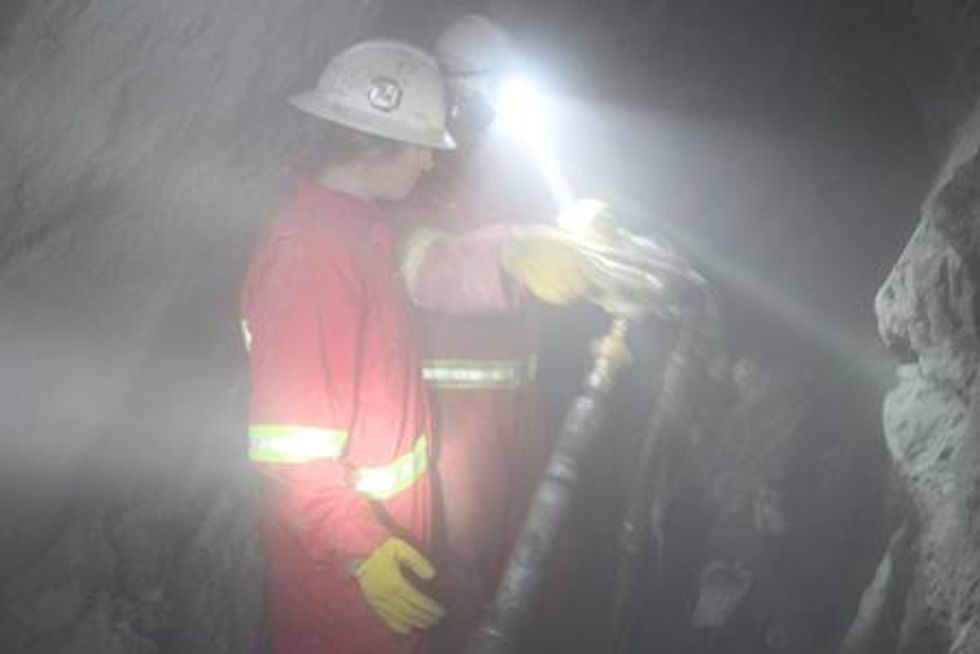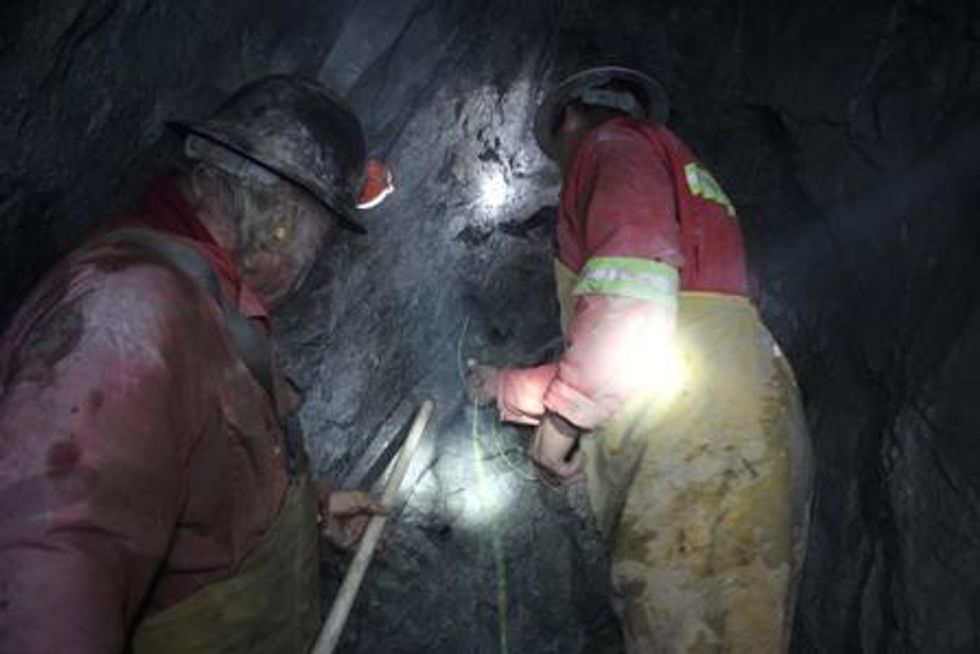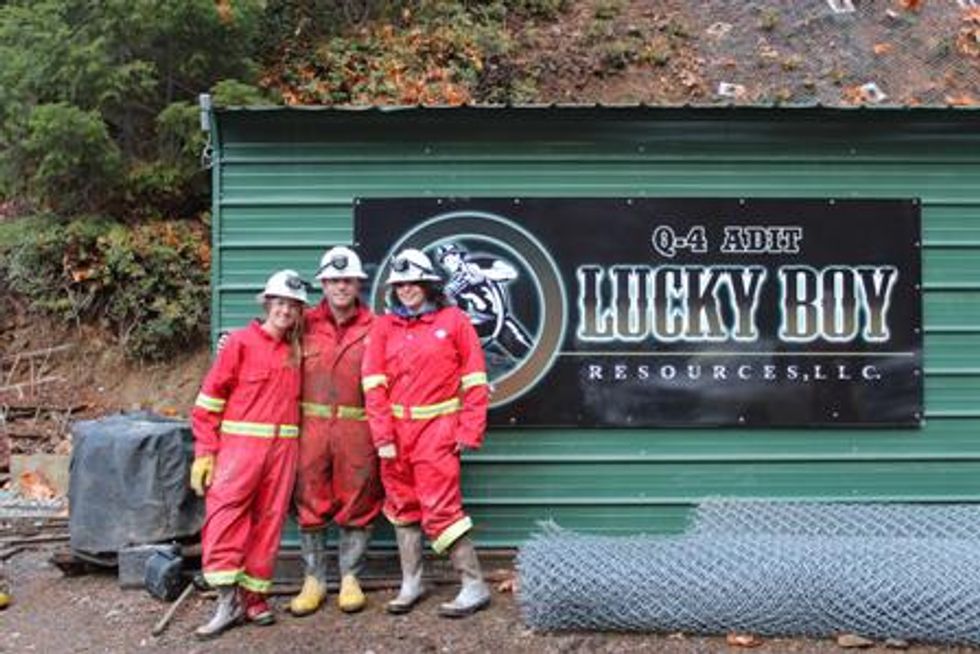There’s Gold in Them Hills: A Tour of Silver Sun Resource’s Cherry Hill Mine
To get a better feeling for their investment, investors should gain some insight into the physical aspect of the company they are considering with a tour of the company’s property. In November, I took a tour of Silver Sun Resource’s producing gold mine, Cherry Hill, in Yreka, California.
When investors purchase physical gold or silver, they are sold a tangible investment that they can see and lock up for safekeeping. Speculative investors who are interested specifically in junior mining stocks can’t exactly purchase mine shares and have a mine shipped to a secure location to ensure that their investment is safe and sound. So what can an investor who is interested in speculative mining stocks do to make sure they are buying into a good deal?
As part of overall due diligence, investors should have some insight into the physical aspect of their investment beyond the information available in press releases or presentations. A way to achieve this, for example, is to take cues from newsletter writers who have visited and assessed the mining companies they want to invest in. But beyond relying on someone else’s advice, if the opportunity presents itself, savvy investors should make their own visual assessment of their potential investment.
While I was in San Francisco for the Hard Assets conference in November, I was introduced to Mark McLeary, president and CEO of Silver Sun Resource (TSXV:SSU). Mark likes to offer potential investors and brokers the chance to visit his producing gold mine, Cherry Hill, and see for themselves the potential that the mine has to offer.
So when the opportunity to tour Cherry Hill presented itself, turning it down was not an option.
A little recent history
Silver Sun completed the acquisition of the Cherry Hill mine, a formerly producing, high-grade gold mine, in June 2011. One of the benefits of purchasing a past-producing mine is that the cost of moving into production is much lower than the cost of bringing a mine from the exploration phase to the production phase.
In the short time since it purchased the property, Silver Sun has already started stockpiling ore and in October it started trucking at least 1,000 tons of mineralized material to a mill located in Grant’s Pass, Oregon.
In production: stockpiles and concentrates
Before heading out of town towards the mine, we made a pit stop at the company’s storage facility. Like any storage unit, equipment and random machine parts were being kept amid the stockpile of ore that was waiting to be trucked off to the mill in Grant’s Pass.
While impressive, the stockpile wasn’t what drew our attention. Sitting a little ways away from the mass of dirty quartz were several large bags. These bags, as Mark explained, had already returned from the mill, and were filled with gold concentrate averaging 15.21 ounces of gold per ton.
The next step for this concentrate was shipment to Nevada for smelting.
Location, location, location
When I think of mines I tend to visualize a hard-to-reach, remote, backcountry hillsides that require vast amounts of money to ensure adequate infrastructure. That wasn’t the case with Cherry Hill.
Because Cherry Hill is a formerly producing mine, all the infrastructure is already there. The mine is just a short ride from the town of Yreka, California, down a state-operated, paved road that turns into a well-maintained gravel road. It’s easy to get to and has great access to the I-5, a major artery running north-south along the West Coast.
All the mine’s infrastructure being in place means Silver Sun has a leg up on some of the costs involved with getting their mine up and running. It also means that when they do ramp up production, the heavy-duty trucks won’t have much of an issue getting the ore from the mine to the mill.
Current program
Silver Sun is currently working on developing the fourth level of the Queen vein (Q4) and extending it back up to Q3. Based on the current mine plan for Q4, the company is looking at over two years of production.
Quartz spider veins
Inside the mine, Mark led us down the main tunnel, pointing our attention to the spider-like quartz veins snaking along the walls. When the quartz vein disappeared around a corner, Mark explained that the company is working at following the faultline to pursue the rest of the mineralization.
Crushed quartz to be extracted from the mine
The geologists working on the Cherry Hill project believe that running 80 feet parallel to the large Queen vein is the King vein. Given the geological patterns of the known mineralization at Cherry Hill, the occurrence of a large quartz vein in the vicinity could mean another 20 years’ worth of mine life for Silver Sun. At this point, Silver Sun hasn’t drilled any holes to confirm the geologists’ theory.
As is to be expected, mining is quite a dirty job. While it’s not cold underground, it is damp and the rock faces are wet, dirty and drippy.
Looking around was both deceptive and impressive — any light bouncing off the wet faces in the darkness aroused the hope of gold. Unfortunately, since we were looking at sections of hanging wall and footwall, where the quartz had already been extracted, all that glittered were sulphides like pyrite and galena — which to the untrained eye look deceptively like gold.
Patch of galena
Every now and then, however, the grimy walls wouldn’t be so grimy and a gratuitous glimpse of large sections of the quartz vein scattered in various out-of-my reach places; a visual indicator of the mine’s potential could be seen.
In this section of Q4, the company is working on hauling out the blasted ore, ramping up production levels along the way. Mark was more than happy to let me snap a few pictures of the tunnel, while Bart, his most experienced miner, singled out various points of interest, explaining how the ore chute climbs all the way to Q3.
Before heading up to the second level of the Q4 adit, we got a demonstration of mucking and slushing.
Colin shows off how slushing and mucking is done
“That’s the job that I did when I was working in here with the guys,” Mark told us, “I let them drill and blast and I worked with this machine all day long.”
The mucker runs along a track through the main level of the mine. From what the miners explained, filling and hauling out material via the mucker is for the most part very time consuming and could be more efficient. Mark is looking to improve the efficiency of the task by making the main level wide enough to drive a truck through. By increasing the amount of material that can be trucked out of the mine, Silver Sun is hoping to shift gears and ramp up production so it can move forward with the next phase in the mine’s expansion, a feat that will be accomplished through recent financing.
Knowing who is working for you
Management is one of the key points for investors to consider when assessing whether or not to invest in a junior mining company. In order to be successful, companies require a well-balanced, experienced management team that has proven itself capable of advancing projects. Companies, for the most part, are forthcoming with this information and readily provide investors with snapshots of their management team’s accomplishments.
What investors don’t get a sense of by staring at words on a page is the value of interacting with the team that is working to make their investment pay off. Investors are invited to attend trade shows like Hard Assets and Mines and Money, both of which are geared at connecting investors with companies looking for investment.
But while there undoubtedly is value in meeting and greeting CEOs and investor relations representatives on a crowded trade show floor, no investor should pass up the opportunity to meet these people on their own turf. A mine visit, like my trip to Cherry Hill, offers the chance for more than just a first impression on a trade show floor.
During the tour of Cherry Hill, I got to know Mark and was able to gauge his commitment to the project. I also found out that not only does Mark run the public face of the company, he also knows how the mining equipment works and was more than happy to show us.
With mining companies, corporate faces are the most prevalent, that being said, it is no surprise that we often don’t hear about the people who work underground. At Cherry Hill, I had the pleasure of meeting the company’s current miners: Bart, Colin and Steven. Each worker has a specific job and was more than glad to show us what a typical day at their office looks like.
Talking to the miners provided us with a firsthand look at all the secrets the mine has to offer. They were all well aware of the worth of every ore cart, where the latest visible thatch of quartz was and the what the next phase was for advancement of the project.
The informal setting of a mine site visit creates the opportunity to learn more about the company, the project and the people involved. With that firsthand knowledge, investors gain well-rounded experience for a well-rounded investment.
Resource estimates and compliance
One thing that struck me as interesting about Silver Sun is that it doesn’t have an NI 43-101 compliant resource for their current program. But, that is by no means a point of discouragement.
Defining a resource is a big expense for exploration companies, costing millions of dollars to complete. In purchasing a previously producing mine, Silver Sun has forgone the costly resource definition process because, as Mark so eloquently put it, “this was all done, we know what’s here, so let’s just go mine it because we know it’s here!”
With a definite cost-savings point of view, Mark asked, “why spend the money if you don’t have to?” when asked about if the company will get a compliant resource estimate for its current work. However, that’s not to say that they will never define the resource.
Drilling and the dangerous materials
To get to the section of of Q4 currently being developed, we climbed a rickety two-segment iron-rung ladder and squeezed through a tight opening to the second level of the mine shaft. On this level, there are no lights, so we had to rely on our headlamps to see. It’s quite daunting to realize that for the most part, working in a mine offers little to no light and very limited peripheral vision.
Definitely not a place to be if you tend to get claustrophobic.
Mark demonstrated how to work the hydraulic drill that the miners use to drill the holes in the wall. It was quite impressive in that not only was the CEO of Silver Sun giving a tour the mine, but he was also working the equipment and offering the chance to try drilling a hole into the rock face.
By no means is drilling an easy job! Physically demanding and dirty, my arms were numb from the intense vibrations for at least 10 minutes.
After the holes were drilled, the next step was to fill them with explosives and blast five feet of rock out of the way. Mark explained the intricacies and steps involved in these mine-shaft expansions and told us that the depth of the blast is determined by the depth of the drill hole and the amount of explosives used.
Colin and Bart fit each stick of plastic explosives with a detonator and stuffed two sticks into each of the 12 holes, pushing them in with a rod to make sure they were in all the way.
Before the timer was set, it was down the chute, to the mouth of the mine shaft – the safe zone. And we waited. For roughly four-and-a-half minutes we waited, losing track of time until suddenly the sound of exploding rock above and the subsequent shockwave vibrated through the walls and air around us.
And that, ladies and gentlemen, is how it is done.
We exited the mine, closed the doors, and that was it for the day. Once the dust settled and the noxious fumes dissipated, the miners returned to work and continued with their hauling ore carts and expanding the mine to extract the gold found under the Cherry Hill mountain.
First person experience
Visiting Silver Sun’s mine highlighted how important it is to understand your investment. From inside the mine you get to see firsthand all the facets of the company and project that can’t be gauged through a press release. A visit to a mine fills in all the blanks; from how a company operates, to meeting the people responsible for a company’s success — and most importantly, the chance to view the asset in all its phases.
So whether you get your investment advice from a trusted analyst or your stockbroker, as an investor it is part of your due diligence on your investment to make the most educated possible decision you can to reap the rewards.
Securities Disclosure: I, Vivien Diniz, have no investment interest in Silver Sun Resource.
Editorial Disclosure: At the time of the mine tour, Silver Sun Resource was not a client of The Investing News Network. SSU recently launched an advertising campaign with INN. This article is not affiliated with SSU’s advertising campaign.
